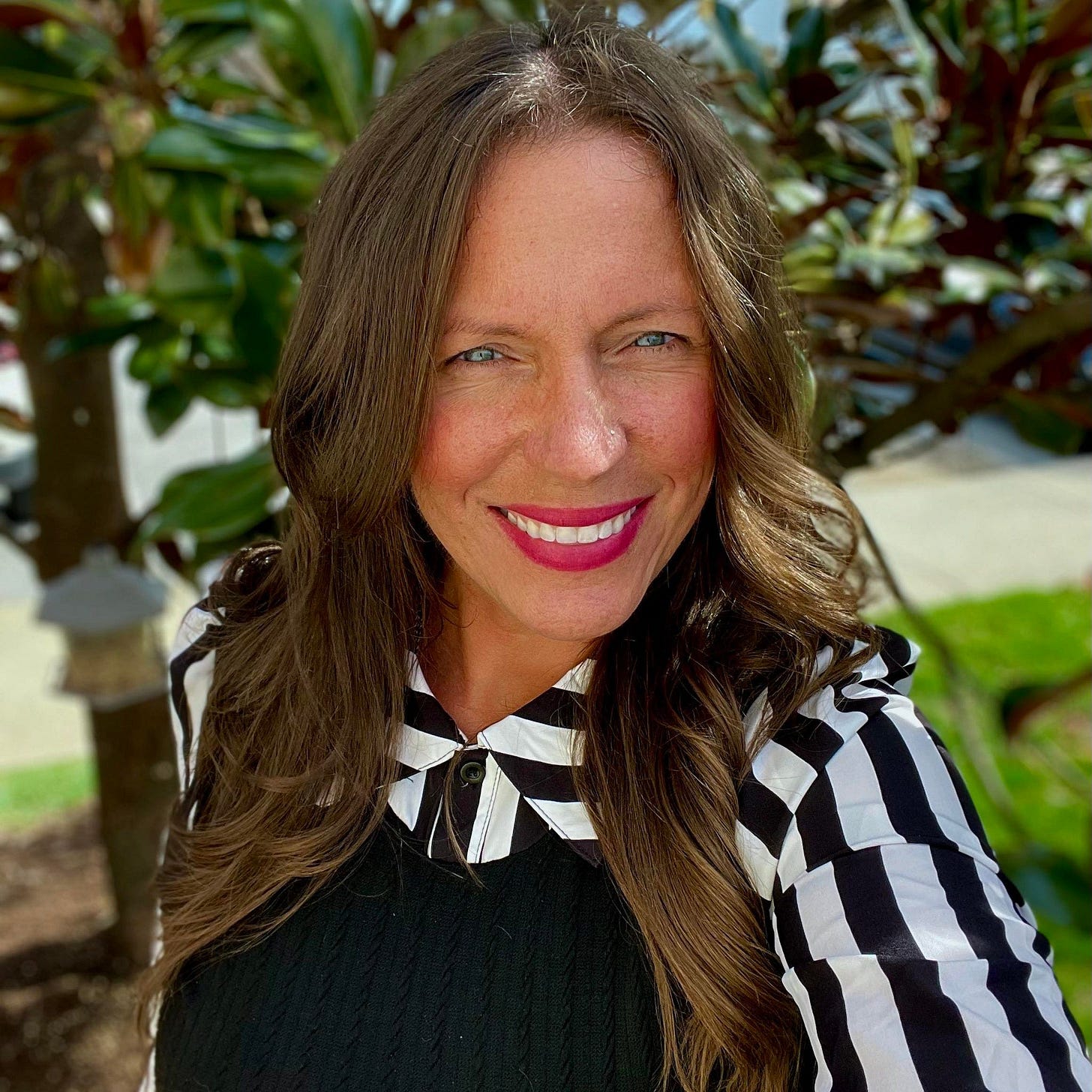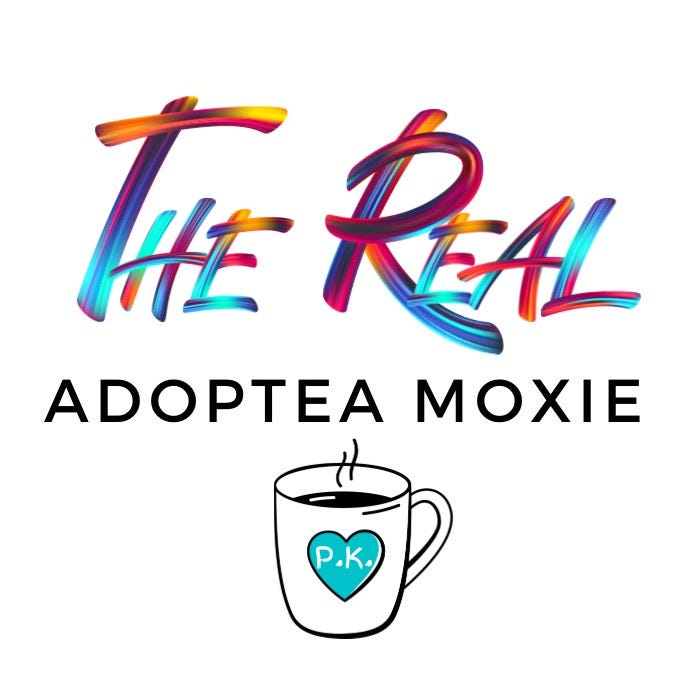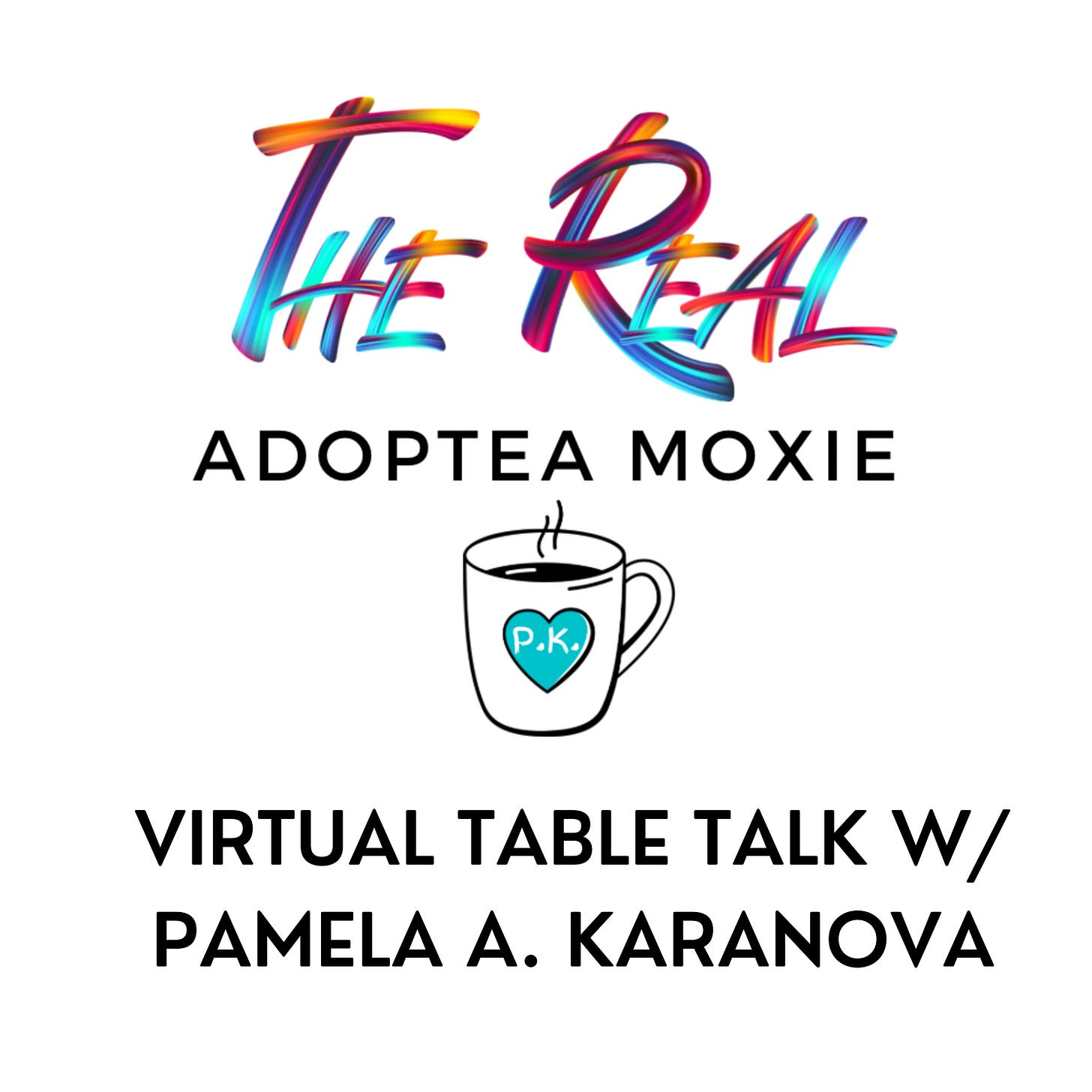Why Adoptees Can't "Move On & Get Over It."
If "moving on and getting over it" was that easy for adoptees, don't you think we would have done it by now?

*Disclaimer - If you are one of the adoptees who doesn’t feel adoption has impacted you negatively, or you feel like relinquishment from your birth mother isn’t a traumatic experience, this article likely won’t do you much good. If you previously struggled and now have healed and moved on, think about the adoptees who haven’t and those who haven’t found the tools you have. This article was written for the hundreds of thousands who struggle with relinquishment and adoption trauma and feel it has impacted us significantly. It’s for those constantly telling us to “Move on & Get over it” and adoptees who are silenced and shut down by those who claim to love us. It’s for those who aren’t adopted so they can better understand how significantly this hurts adoptees.
One of the most commonly used phrases towards adopted people is, "You need to move on and get over it!"
While I know how frustrating it can be to have someone in your life who is harping on the same thing over and over and over like a broken record, telling them to "get over it and move on" isn't the least bit helpful.
It's exceptionally damaging to adoptees, and here's why:
THE DAMAGE OF INVALIDATION OF AN ADOPTEE'S FEELINGS
First and foremost, it invalidates the adoptee's feelings and experiences. It dismisses our pain and struggles, making us feel unheard and unsupported. Adoptees must be allowed to express our emotions and process our experiences in our own time and at our own pace.
Additionally, this statement lacks empathy and understanding. It fails to acknowledge the complexity of adoptee emotions and the impact that specific events like relinquishment trauma, adoption trauma, grief, and loss have on each adopted person. It also oversimplifies the healing process and assumes everyone can easily let go of their pain and move forward.
This statement that is used against adoptees constantly is a statement that can reinforce societal pressure to suppress adoptee emotions and mask vulnerability. It sends the message that feeling complicated adoptee feelings or struggling as an adoptee is not okay, which can lead to internalized shame and further emotional distress. In reality, it is essential to create a safe space for adoptees to express their emotions and seek support when needed.
Consider Reading: BIG Adoptee Feelings, Learning to Feel the Feels While Coming Out of the Fog.
We must realize that everyone's healing journey is unique to them, just like the uniqueness of our fingerprints. What works for one adoptee might not work for another. Telling adoptees to "move on and get over it" disregards our individual needs and implies that there is a one-size-fits-all solution to healing. It's critical to respect each adoptee's healing process and offer understanding and compassion instead of imposing unrealistic expectations.
LACK OF TRANSPARENCY IN ADOPTION CAN LEAD TO INEFFECTIVE HEALING
Let's also consider that to "move on and get over it," we must have all the puzzle pieces to know what we're moving on and getting over. How do we move on when our lives are infiltrated with secrecy, lies, and half-truths? The world keeps our [HER]-Story & [HIS]-Story kept captive, leaving us with dead ends in discovering who we are and where we come from.
We need to highlight the secrecy, lies, and half-truths, not to mention the secret keepers in adoption. Secrets make people sick, cause lifelong harm and damage, and are why so many adoptees are damaged.
Consider Reading: In Adoption, We're Only As Sick As Our Secrets.
If "moving on and getting over it" was that easy for adoptees, don't you think we would have done it by now? If we had a wall switch that says "Happy" vs. "Sad," wouldn't your average person choose to switch it to Happy? If we had that choice, we would!
RELINQUISHMENT TRAUMA ISN'T SOMETHING ADOPTEES JUST "GET OVER & MOVE ON FROM."
Everyone needs to remember and understand that relinquishment trauma isn't something adoptees can just "get over." In the case of adoption, relinquishment trauma is a wound that is too big for some of us to heal. It can and does impact adoptees in different ways throughout our entire lifetimes. Adding adoption trauma to the mix creates another complex layer we must work through.
Consider Reading: 15 Significant Steps Towards Adoptee Healing.
Relinquishment trauma (or any trauma) does not heal like other wounds because it affects the physical body, mind, and emotions. When adoptees experience relinquishment trauma, it can leave deep emotional scars that are not visible to the naked eye. Unlike physical wounds that can be treated with medication and healed over time, relinquishment trauma requires a different kind of healing process.
Consider Reading: A Deprivation of Resources Complicated By Adoption Secrecy Causes a Deficiency of Healing & Recovery for Adoptees.
Relinquishment trauma often disrupts our sense of safety, security, and trust. It can impact our mental and emotional well-being, leading to symptoms such as anxiety, depression, flashbacks, nightmares, or even post-traumatic stress disorder (PTSD). These psychological wounds can be just as debilitating as physical ones, if not more.
The healing of relinquishment trauma and adoption trauma involves addressing the underlying psychological and emotional aspects of the adoptee experience. We must go inward.
Consider Reading: Relinquishment Trauma, The Forgotten Trauma.
It requires a combination of therapy, support, and self-care. This healing process can be complex and lengthy, as it involves unraveling and processing the traumatic memories and emotions associated with the adoptee experience.
Consider Reading: Being Adopted, Failed Therapy Attempts & Therapying The Therapist.
Furthermore, relinquishment trauma can be deeply ingrained in our nervous system and trigger a fight, flight, freeze, or fawn response, even long after the traumatic experience of separation from our birth mothers has passed. This can make it challenging for the body to regulate its stress response, leading to continued feelings of fear and hypervigilance.
AN ADOPTEES HEALING JOURNEY
It is important to remember that healing from relinquishment trauma and adoption trauma is a personal journey, and every adoptee's healing process is unique. Adoptees are hurting and in despair in a world that promotes and praises adoption. They don’t leave room for our pain. With time, patience, and proper support, it is possible to heal, but it's never helpful to tell an adoptee to "Move on and get over it!"
Grief & loss are pivotal components of the adoptee experience because our lives begin with loss. If you know anything about grief & loss, you know that it can linger and surface for a lifetime. If you knew someone who just lost their husband or wife recently or a person who lost their mom in childbirth, would you tell them to “get over it and move on?” No, you wouldn’t, so please never say this to adoptees. Please know that many adoptees are grieving, and there is no timeframe for grief and how it works. Adoptees experience what’s called COMPLEX grief, oftentimes grieving what should have been, could have been, and even lost relationships with people who are still alive or those who have passed on and we’ve been robbed of those relationships. Grief runs deep for most adoptees.
Consider Reading: Saying “Hello” to Adoptee Grief & Loss.
On the other hand, extending a hand of empathy, understanding, and compassion towards adoptees when they share experiences and feelings is helpful and appreciated. Being willing to listen and learn from adult adoptees can bring us closer together and create a more constructive and peaceful understanding of the adoptee experience.
I see you; I feel your pain for all the adoptees who feel forgotten, lost, and alone. Please don’t give up, and know you aren’t alone in feeling like you do.
I have compiled a list of recommended resources for adoptees and advocates. You can find it here: Recommended Resources for Adult Adoptees and Adoption Advocates.
Thank you for reading.
Understanding is Love,
Pamela A. Karanova
SET UP A TABLE TALK
You asked for it, and she's delivering. As a thrilling spinoff to The Real Adoptea Moxie - Introducing AdopTEA RealiTEA, One-on-One Virtual Table Talk Sessions with Pamela A. Karanova launching in April 2023.
For over a decade, Pamela has poured thousands of hours into providing emotional labor to the adoption community. Most of the time, this labor of love has been behind the scenes, in one-on-one conversations and interactions with adoptees worldwide.
Navigating the reality that providing others with insight has created an emotional burnout in Pamela that has caused her to retreat, withdraw and disconnect due to the overload of trauma dumping she experiences daily.
Pamela is taking on a new approach in opening up her schedule to continue these conversations by entering a self-care space. She is giving herself the rightfully deserved gift of being compensated for her endless emotional labor.
Creating a healthy balance for Pamela to host these in-depth conversations is a radical form of self-love for herself and the community she adores. However, this is essential in setting boundaries for her emotional and mental wellbeing while providing a service to the community she is so deeply passionate about.
Table Talk with Pamela A. Karanova allows specific days and times to connect more profoundly with those who seek soothing, validation, understanding, and acknowledgment from abandonment, rejection, grief, loss, anger, and rage from the adoptee experience. It's a space for conversations between Pamela and adoptees and non-adoptees.
In addition, Pamela has created life-saving resources for the adoptee community, and 100% of her efforts have been a labor of love out of the goodness of her heart, never being compensated for all the work she has put into the adoptee community.
After 27 years of alcohol dependence to numb her pain from her adoption experience, Pamela has spent over a decade healing and recovering from relinquishment and adoption trauma.
As a result, Pamela has given herself the gift of being recovered and lives a joyful and nourishing lifestyle. Today, she's well-versed in her healing journey and has a wealth of self-care tools that have helped her heal that she's happy to share.
CLICK HERE TO LEARN MORE AND BOOK YOUR TABLE TALK TODAY!
Here are a few articles I recommend reading:
100 Heartfelt Transracial Adoptee Quotes that Honor the Truth of Adoption by Pamela A. Karanova & 100 Transracial Adoptees Worldwide
What Are the Mental Health Effects of Being Adopted? By Therodora Blanchfield, AMFT
10 Things Adoptive Parents Should Know – An Adoptee’s Perspective by Cristina Romo
Understanding Why Adoptees Are At A Higher Risk for Suicide by Maureen McCauley | Light of Day Stories
Toward Preventing Adoption- Related Suicide by Mirah Riben
Relationship Between Adoption and Suicide Attempts: A Meta-Analysis
Reckoning with The Primal Wound Documentary with a 10% off coupon code (25 available) “adopteesconnect”
Still, Grieving Adoptee Losses, What My Adoptive Parents Could Have Done Differently.






This. We cant get over our traumas because they are ingrained with who we are. This is the first article I read that actually made me tear up bc basically everyone is like "get over it", and "You were saved" Like that excuses the fact I had emotional abuse and my sibling tried to strangle me over something stupid that I don't even remember fighting about- and being told I deserved it was the worst part. (none of that excuses the stuff I went through). Also being told my natural mom didnt' even want me by a former DSP once was the worst and being told I "cant have PTSD because I always knew I was adopted" also my adopter calls me "the boy who cries wolf" because I am basically a question mark medically. Like how am I supposed to know what's going on with me when I have no history?!